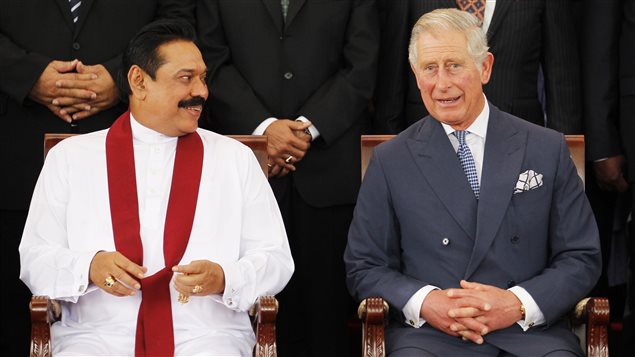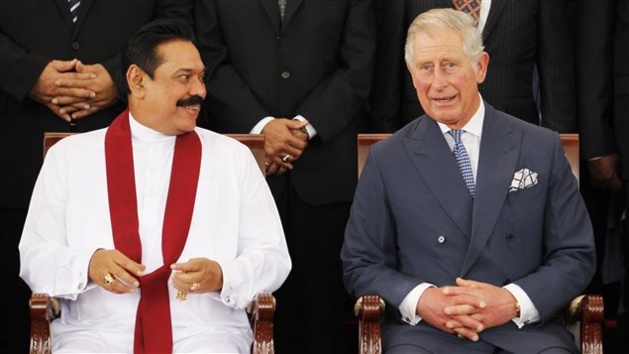The summit is held every two years between leaders of all common wealth nations. The first such meet was held in 1971. The purpose of CHOGM is for the participants to try and orchestrate common policies on world issues. Strict enforcement is rarely done but has happened once for the case of South Africa in 1980s. CHOGM pressed to impose severe economic sanctions on South Africa due to the prevalence of Apartheid. Since most of the important discussions do not come up during the formal discussions, the informal talks are said to be more important.
Political turmoil in India
Even weeks before the summit began the question of Indian representation caused a stir in the Indian political fraternity. Even the ruling party was split in their views about Indian presence in the summit. Typically this meeting is represented by the head of the state. However, there was immense pressure on Prime Minister Manmohan Singh with several regional parties demanding him not to attend. Though it was confirmed earlier that External Affairs minister Salman Khurshid had confirmed his participation, the Prime Minister’s decision was undecided up until a few days before the start of this summit.
Several leaders of regional parties, also some of his own party men from Tamil Nadu lobbied to the Prime Minister not to attend the meeting. By not attending, they justify that India would send a strong protest against Sri Lanka for their alleged war crimes committed during the civil war between the army and LTTE (Liberation Tigers of Tamil Eelam). Some parts even wanted the whole of Indian contingent to call off their trip. After weeks of ambiguity Prime Minister Manmohan Singh caved in to the political pressure and let the External Affairs minister lead the Indian team.
Apart from India, Mauritius and Canada also refrained from sending their respective nation’s leader to CHOGM. The island nation of Mauritius even pulled out from hosting CHOGM in 2015 to mark their protest.
Several leaders of regional parties, also some of his own party men from Tamil Nadu lobbied to the Prime Minister not to attend the meeting. By not attending, they justify that India would send a strong protest against Sri Lanka for their alleged war crimes committed during the civil war between the army and LTTE (Liberation Tigers of Tamil Eelam). Some parts even wanted the whole of Indian contingent to call off their trip. After weeks of ambiguity Prime Minister Manmohan Singh caved in to the political pressure and let the External Affairs minister lead the Indian team.
Apart from India, Mauritius and Canada also refrained from sending their respective nation’s leader to CHOGM. The island nation of Mauritius even pulled out from hosting CHOGM in 2015 to mark their protest.
A landmark convention
This summit here in Sri Lanka turned out to be a landmark one with several firsts proudly under its belt. This was the first time when this summit was not headed by the Queen of England. Prince Charles took over his mother’s reins in this convention. The Prince joined the summit on his birthday, November 14, and officially represented The Queen the next day. British Prime Minister David Cameron became the first leader of a state to visit the Northern Provinces of Sri Lanka since 1948. No leader of any nation had stepped foot in the Northern Provinces since the civil war broke out. External Affairs minister of India, Salman Khurshid expressed his distress that Indian Prime Minister could not come. He said he wanted Manmohan Singh to be the first leader to visit the place, since India helped a lot in resettlement efforts in Northern provinces.
Human rights violations in Sri Lanka during the civil war topped the agenda in this year’s meeting. Apart from the collective meeting there were numerous bilateral talks between Sri Lankan President Mahinda Rajapaksa. Prior to the beginning of this year’s meeting it was declared by the present secretary general of Commonwealth, Kamalesh Sharma that a committee would be set up to look into the allegations of human right violations by Sri Lankan army during the ending stages of civil war. However, many criticized this move citing the time during which it was announced. The term of current secretary general is about to end and Sri Lanka would be administering the next term. This many cite as a clash of interest and express concerns that a fair enquiry may not be conducted.
The Chinese intruder
Despite not being a member in the Commonwealth, China played a notable role in the summit by providing millions of dollars to the island nation for refurbishing CHOGM venues. Col. Hariharan, a retired MI officer who also served as the head if Indian Peace Keeping Force in Sri Lanka between 1987 and 1990, in his blog post analyzed and explained how China was “cashing in on India’s Sri Lanka woes”. In his article, he noted that due to India’s stance towards Sri Lanka, China has gained a lot, especially in terms of FTA (Free Trade Agreement).
He noted that the FTA between Sri Lanka and China has shown tremendous growth between 2005 and 2012. The Hindu in its editorial argued that “a decision by Dr. Singh to attend CHOGM and include a visit to Jaffna would have been a powerful reaffirmation New Delhi’s stakes and interests in the region”. Many experts from the academia opine that India tends to lose out more to China with respect to Sri Lanka due to political pressure within domestic circles.
Though there is a populist sentiment at stake when it comes to the subject of India Sri Lanka relations, especially sidelining the civil war, the subject of foreign relations remains under the jurisdiction of the central government. Yielding to political pressure from one part of the country can undermine the constitutional authority of Central government as dictated by the Constitution of India.
Lire cet article en français
He noted that the FTA between Sri Lanka and China has shown tremendous growth between 2005 and 2012. The Hindu in its editorial argued that “a decision by Dr. Singh to attend CHOGM and include a visit to Jaffna would have been a powerful reaffirmation New Delhi’s stakes and interests in the region”. Many experts from the academia opine that India tends to lose out more to China with respect to Sri Lanka due to political pressure within domestic circles.
Though there is a populist sentiment at stake when it comes to the subject of India Sri Lanka relations, especially sidelining the civil war, the subject of foreign relations remains under the jurisdiction of the central government. Yielding to political pressure from one part of the country can undermine the constitutional authority of Central government as dictated by the Constitution of India.
Lire cet article en français






























